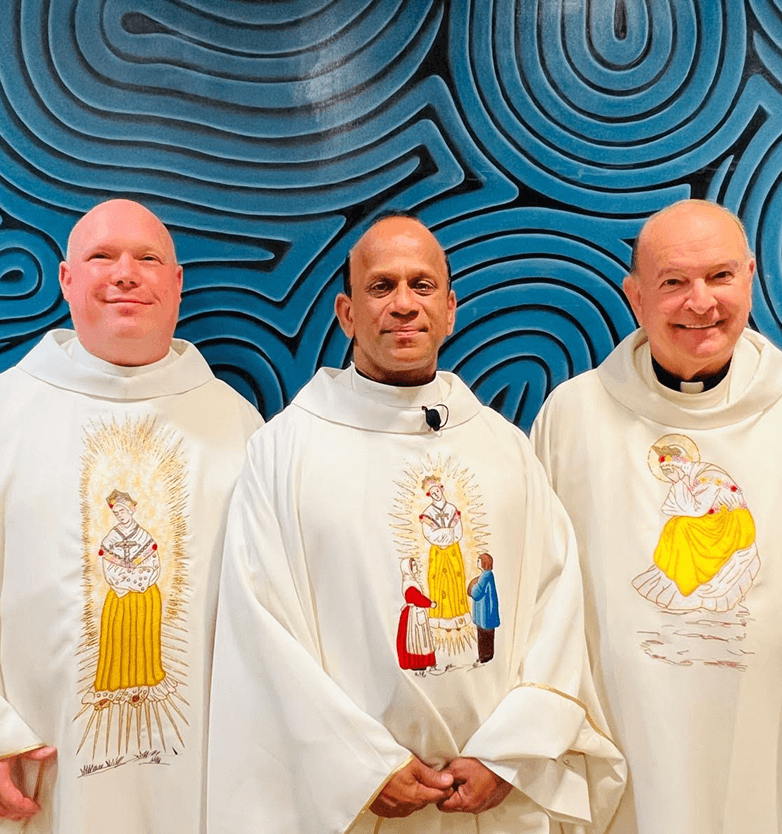In the year 2000, the Missionaries of Our Lady of La Salette in the United States marked a profound turning point in their history. After decades of ministry under four distinct provinces (Mary Queen, Seven Dolors, Immaculate Heart of Mary, and Mary Queen of Peace) a bold and courageous decision was made: to merge the above-mentioned four Provinces into one.
This merger gave birth to our new Province of Mary, Mother of the Americas, symbolizing not only unity but a renewed sense of mission in a rapidly changing Church and world. No longer shaped by regional boundaries, the new configuration also opened wide the doors to international collaboration, embodying the global spirit of reconciliation first shared by Our Lady at La Salette in 1846.
Today, the Province of Mary, Mother of the Americas thrives with the support and presence of La Salette Missionaries from around the world (India, Angola, Philippines, and Madagascar). These brothers have brought to the Province new life, cultures, and expressions of faith that continue to enrich our mission on American soil.
As a result, the Missionaries of Our Lady of La Salette serve across the country, sharing Mary’s message of reconciliation with all who seek healing and hope, through various parish ministries, one Retreat Center and one National Shrine of Our Lady of La Salette, both located in Attleboro, Massachusetts. Each year, these sacred places welcome thousands of pilgrims and seekers, offering spiritual renewal, silence, and the loving call of a Mother who still says: “Come near, my children… be not afraid.”
What began as a courageous step toward unity has become a vibrant, multicultural tapestry of faith—rooted in hope, mission, and the enduring grace of reconciliation.

